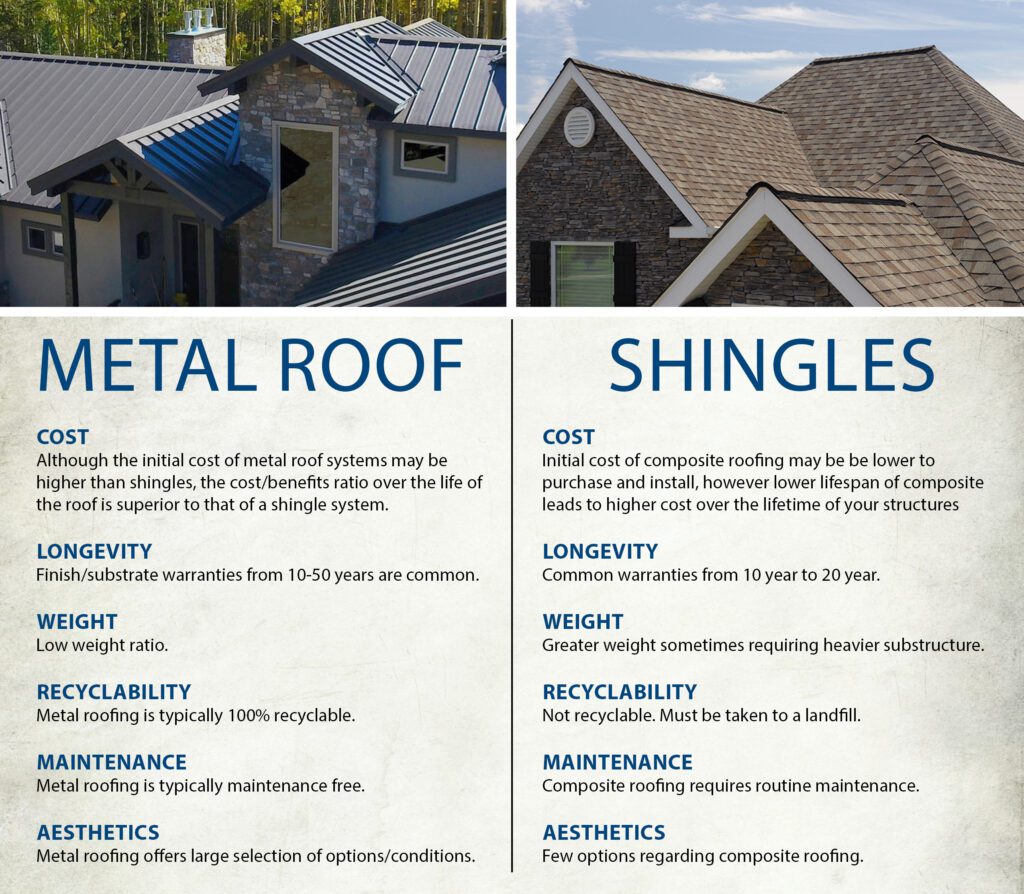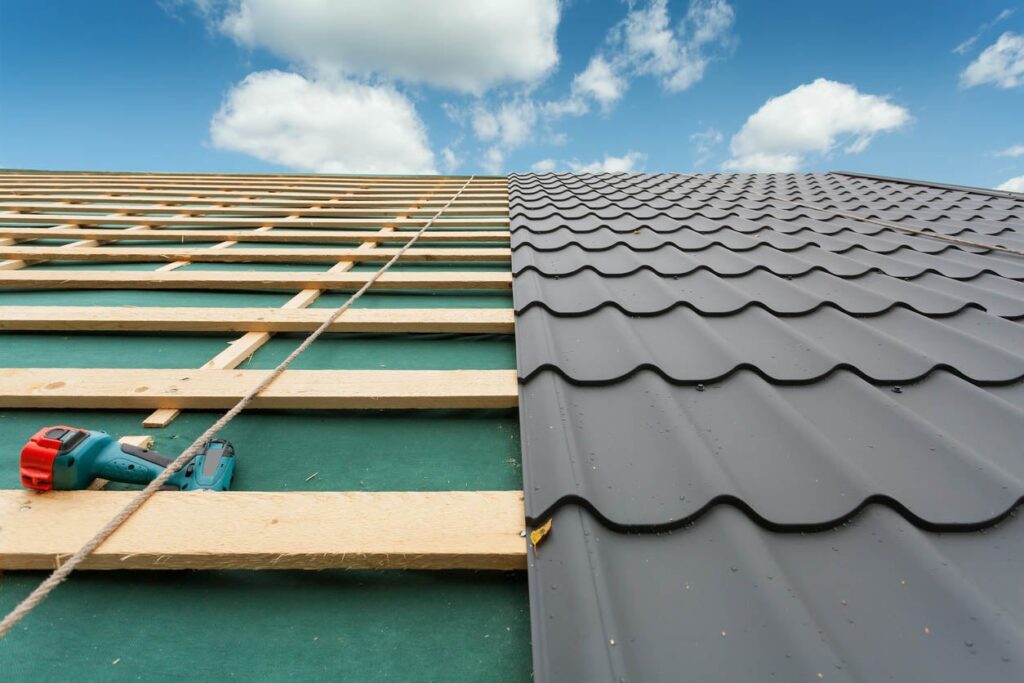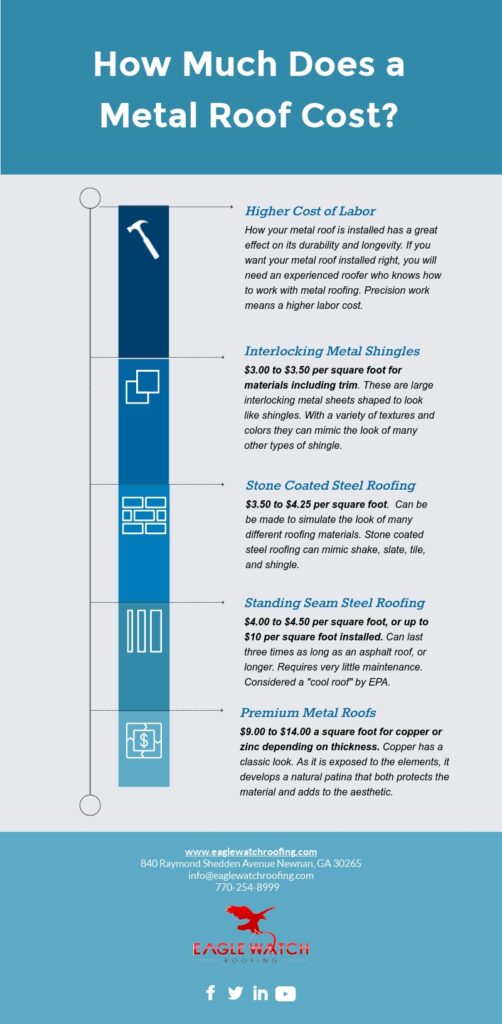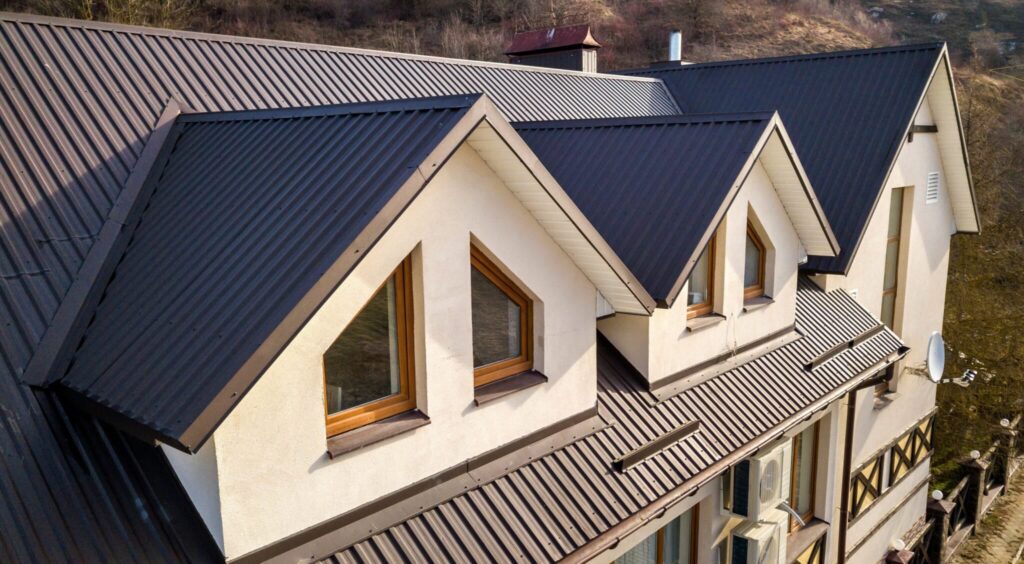Are you considering installing a metal roof but unsure about the cost? Well, you’re in the right place! In this article, we will explore the factors that determine the budget for a metal roof and provide you with valuable insights to help you make an informed decision. Whether you’re a homeowner or a commercial property owner, understanding the cost implications of a metal roof is essential. So sit tight and get ready to learn how to budget for a metal roof that meets both your needs and your wallet!

Factors to Consider
When considering a metal roof for your home, there are several factors you should take into account to ensure you make an informed decision and budget accordingly. These factors include the size of your roof, the type of metal roof you choose, the slope of your roof, labor costs, and any additional features you may want to include in your project. By understanding and considering these factors, you can better estimate the cost of installing a metal roof and plan your budget accordingly.
Roof Size
The size of your roof is a fundamental factor that will impact both the material and labor costs of your metal roof installation. Before you start estimating your budget, you’ll need to gather accurate measurements of your roof. Measuring your roof can be done by physically measuring each section or by using satellite imagery or aerial photography tools available online.
Once you have the measurements, you can calculate the square footage of your roof. This is done by multiplying the length and width of each section and adding the results together. Knowing the square footage of your roof is crucial as it will be used to determine how much material you will need and, subsequently, the overall cost of the project.
It’s important to note that the larger your roof, the higher the cost of materials and labor will be. Therefore, it’s essential to consider the impact of roof size on your budget and make adjustments accordingly.
Type of Metal Roof
The type of metal roof you choose will significantly affect both the cost and the longevity of your roof. There are several different metal roof options available, including steel, aluminum, copper, and zinc. Each type offers its own set of benefits and considerations.
When comparing the cost of different metal roof options, it’s important to consider that prices can vary significantly. Factors such as the availability of the material, the manufacturing process, and any additional coatings or finishes can all impact the overall cost.
Another important consideration when choosing a metal roof is its longevity and maintenance requirements. While metal roofs are known for their durability, certain metal types, such as copper or zinc, can offer an even longer lifespan. Additionally, the maintenance needs of each metal roof type may differ, which can also affect your long-term budget.
Ultimately, the type of metal roof you choose should align with your budget, expectations, and desired aesthetic appeal.
Roof Slope
The slope or pitch of your roof is another factor that can impact both the complexity of the installation process and the overall cost of your metal roof. The pitch of a roof is measured by the rise of the roof in relation to its horizontal span. Generally, steeper roofs require more labor and additional safety precautions, which can increase the cost of installation.
Roof slope can also affect the material and design options available to you. Some metal roof styles may not be suitable for roofs with a very low or very high pitch. Therefore, it’s important to consider the impact of your roof slope on the overall project cost and choose a metal roof style that is compatible with your roof’s pitch.

Labor Costs
Professional installation is highly recommended for your metal roof to ensure a proper and long-lasting installation. Labor costs can vary depending on several factors, including the size and complexity of the project, the roofing crew size, and the experience and expertise of the roofing professionals.
The larger and more intricate your roof, the more labor it will require, which can significantly impact your budget. Additionally, the level of experience and expertise of the roofing crew can affect the quality of the installation and potentially impact the longevity of your roof. Therefore, it’s important to choose a reputable roofing contractor with a proven track record.
Regional labor rates can also influence the overall labor costs of your metal roof installation. It’s essential to research and compare labor rates in your area to get an accurate estimate of the labor costs you can expect. By considering labor costs, you can ensure that your budget for installation aligns with the expertise and quality of the professionals in your area.
Additional Features
When budgeting for a metal roof, it’s important to consider any additional features you may want to include in your project. These features can enhance the functionality and aesthetics of your roof but may also add additional costs to your overall budget. Some common additional features to consider include insulation, underlayment, gutters and downspouts, as well as skylights or chimneys.
The inclusion of insulation in your metal roof can help improve energy efficiency and temperature regulation in your home. Underlayment is another important feature that provides an additional protective layer and helps prevent moisture penetration. Both insulation and underlayment can increase the initial cost but offer long-term benefits and potential energy savings.
Gutters and downspouts are essential for proper drainage and can help protect your roof and foundation from water damage. However, the cost of installing gutters and downspouts should be factored into your budget consideration.
If your home has skylights or chimneys, it’s important to determine if they need to be replaced or modified to accommodate the metal roof. Adding or adjusting these features can add extra complexity to the installation process and require additional materials and labor costs.
By considering these additional features and their impact on your overall budget, you can ensure that your metal roof meets all your desired specifications while still remaining within your financial means.

Cost Range
The cost range of metal roofs can vary significantly based on various factors. On average, metal roofs can cost anywhere from $7 to $15 per square foot. However, it’s important to note that this is just a general range, and the actual cost of your metal roof can be higher or lower depending on specific circumstances.
Factors that can affect the cost range include the type of metal roof you choose, the size and complexity of your roof, the cost of labor in your area, and any additional features you include in your project. For example, more expensive metal roof options such as copper or zinc will increase the overall cost, while simpler designs or DIY options can help reduce expenses.
By understanding the factors that can impact the cost range of your metal roof, you can better evaluate and compare quotes from different roofing contractors. This will allow you to make an informed decision that aligns with your budget and specific project requirements.
Financing Options
If budgeting for a metal roof seems challenging, there are several financing options available to help make the cost more manageable. Consider the following financing options to determine which best suits your needs:
-
Cash Payment: The most straightforward financing option is to pay for your metal roof installation in cash. If you have the funds available, this can be the most cost-effective choice as it eliminates the need for interest payments or additional fees.
-
Home Equity Loan: If you’re unable to pay for your metal roof upfront, you may consider taking out a home equity loan. This option allows you to borrow against the equity you have built in your home, potentially providing you with a lower interest rate compared to other types of loans.
-
Roofing Contractor Financing: Some roofing contractors offer financing options directly through their services. This can be a convenient choice as it streamlines the payment process and may offer flexible terms or low-interest rates. However, it’s important to carefully review the terms and conditions of any financing agreement before committing.
-
Insurance Coverage: In certain cases, homeowners’ insurance policies may cover partial or full costs for roof repairs or replacements. Review your insurance policy to determine if your metal roof installation qualifies for coverage. It’s advisable to consult with your insurance provider to understand the extent of the coverage and any requirements or limitations.
By exploring these financing options, you can find a solution that fits your budget and makes your metal roof installation more financially feasible.

Cost-Saving Tips
If you’re working with a limited budget or looking to save costs on your metal roof installation, consider the following tips:
-
Research and Compare Quotes: Take the time to research and gather quotes from multiple reputable roofing contractors. Comparing quotes will give you a better understanding of the services offered, pricing, and any potential cost-saving opportunities.
-
Opt for Simpler Metal Roofing Designs: The complexity of the design and installation can greatly impact the cost of your metal roof. Consider simpler designs that require less labor or specialized materials to help reduce costs without compromising quality.
-
Consider DIY Options: If you have experience in roofing or are willing to learn, you may explore DIY options for your metal roof installation. However, keep in mind that roofing requires specialized skills and knowledge. DIY installation carries risks, and mistakes can result in additional expenses in the long run.
-
Regular Maintenance: Proper maintenance can help prolong the lifespan of your metal roof and prevent costly repairs or replacements. Regularly inspect your roof for any signs of damage or wear and address any issues promptly to avoid them from becoming more extensive and expensive.
By implementing these cost-saving tips, you can work within your budget while still achieving a well-installed and durable metal roof.
Conclusion
When budgeting for a metal roof, it’s important to consider various factors such as roof size, type of metal roof, roof slope, labor costs, and any additional features. These factors can significantly impact the overall cost of your metal roof installation and should be carefully evaluated to ensure you make an informed decision.
By accurately measuring your roof, choosing the right type of metal roof, considering the slope of your roof, accounting for labor costs, and factoring in any additional features, you can create a realistic budget for your metal roof project.
Remember to also consider financing options and explore cost-saving tips to make your metal roof installation more affordable. By carefully considering all these factors and weighing the cost versus the benefits, you can make the best decision for your home and budget while enjoying the many advantages that a metal roof has to offer.
